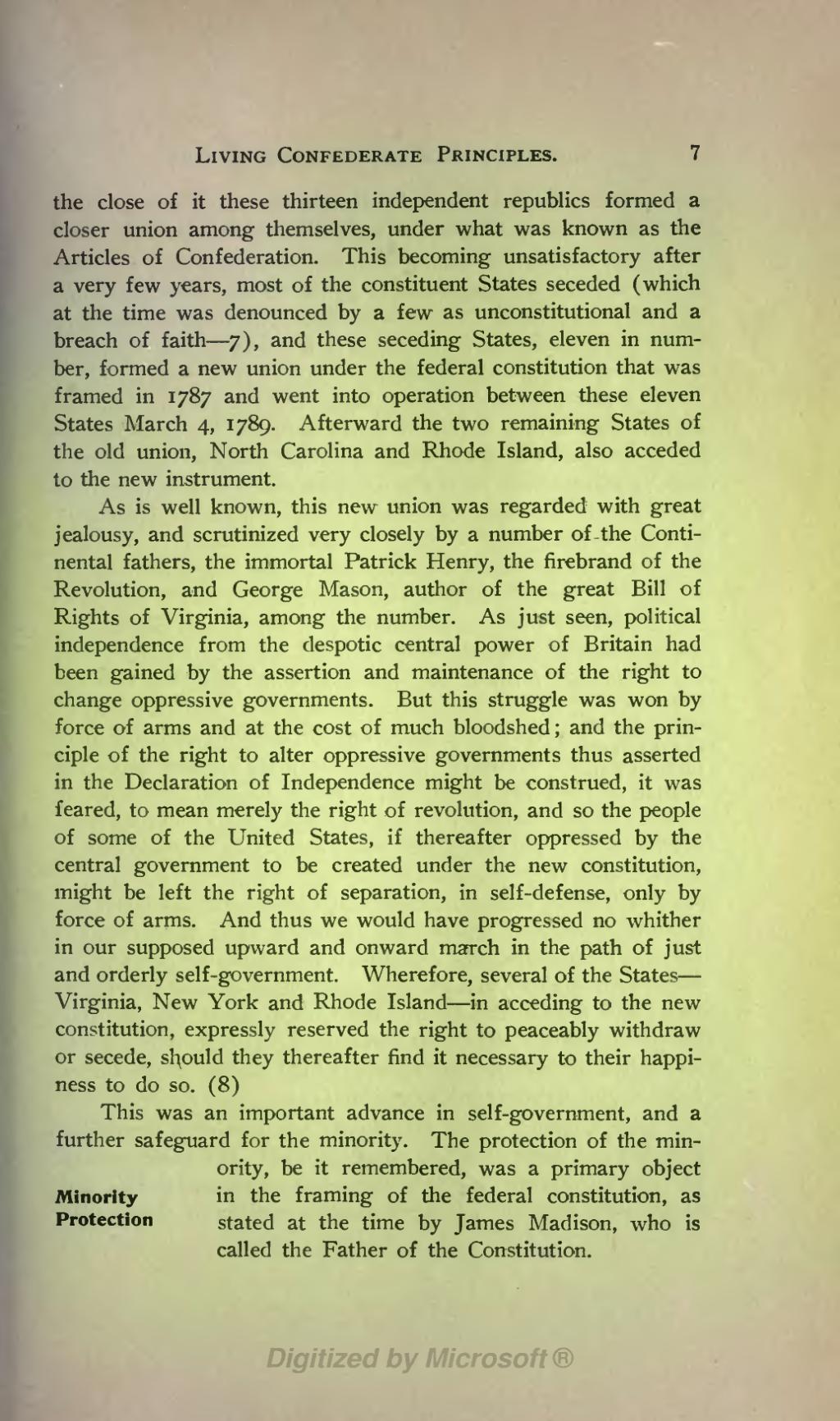the close of it these thirteen independent republics formed a closer union among themselves, under what was known as the Articles of Confederation. This becoming unsatisfactory after a very few years, most of the constituent States seceded (which at the time was denounced by a few as unconstitutional and a breach of faith—7), and these seceding States, eleven in number, formed a new union under the federal constitution that was framed in 1787 and went into operation between these eleven States March 4, 1789. Afterward the two remaining States of the old union, North Carolina and Rhode Island, also acceded to the new instrument.
As is well known, this new union was regarded with great jealousy, and scrutinized very closely by a number of the Continental fathers, the immortal Patrick Henry, the firebrand of the Revolution, and George Mason, author of the great Bill of Rights of Virginia, among the number. As just seen, political independence from the despotic central power of Britain had been gained by the assertion and maintenance of the right to change oppressive governments. But this struggle was won by force of arms and at the cost of much bloodshed; and the principle of the right to alter oppressive governments thus asserted in the Declaration of Independence might be construed, it was feared, to mean merely the right of revolution, and so the people of some of the United States, if thereafter oppressed by the central government to be created under the new constitution, might be left the right of separation, in self-defense, only by force of arms. And thus we would have progressed no whither in our supposed upward and onward march in the path of just and orderly self-government. Wherefore, several of the States—Virginia, New York and Rhode Island—in acceding to the new constitution, expressly reserved the right to peaceably withdraw or secede, should they thereafter find it necessary to their happiness to do so. (8)
This was an important advance in self-government, and a further safeguard for the minority. The protection of the minority, Minority Protection be it remembered, was a primary object in the framing of the federal constitution, as stated at the time by James Madison, who is called the Father of the Constitution.
